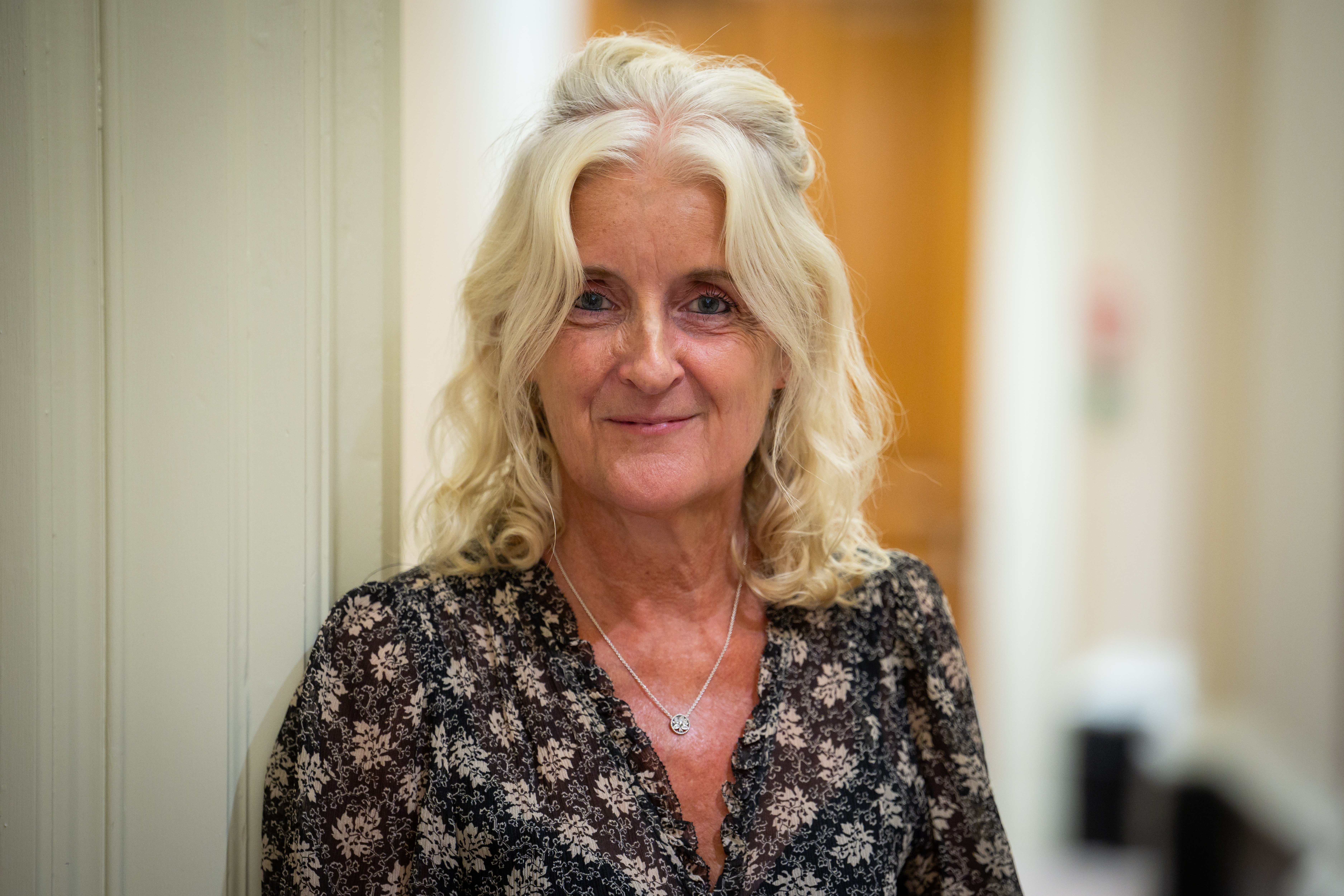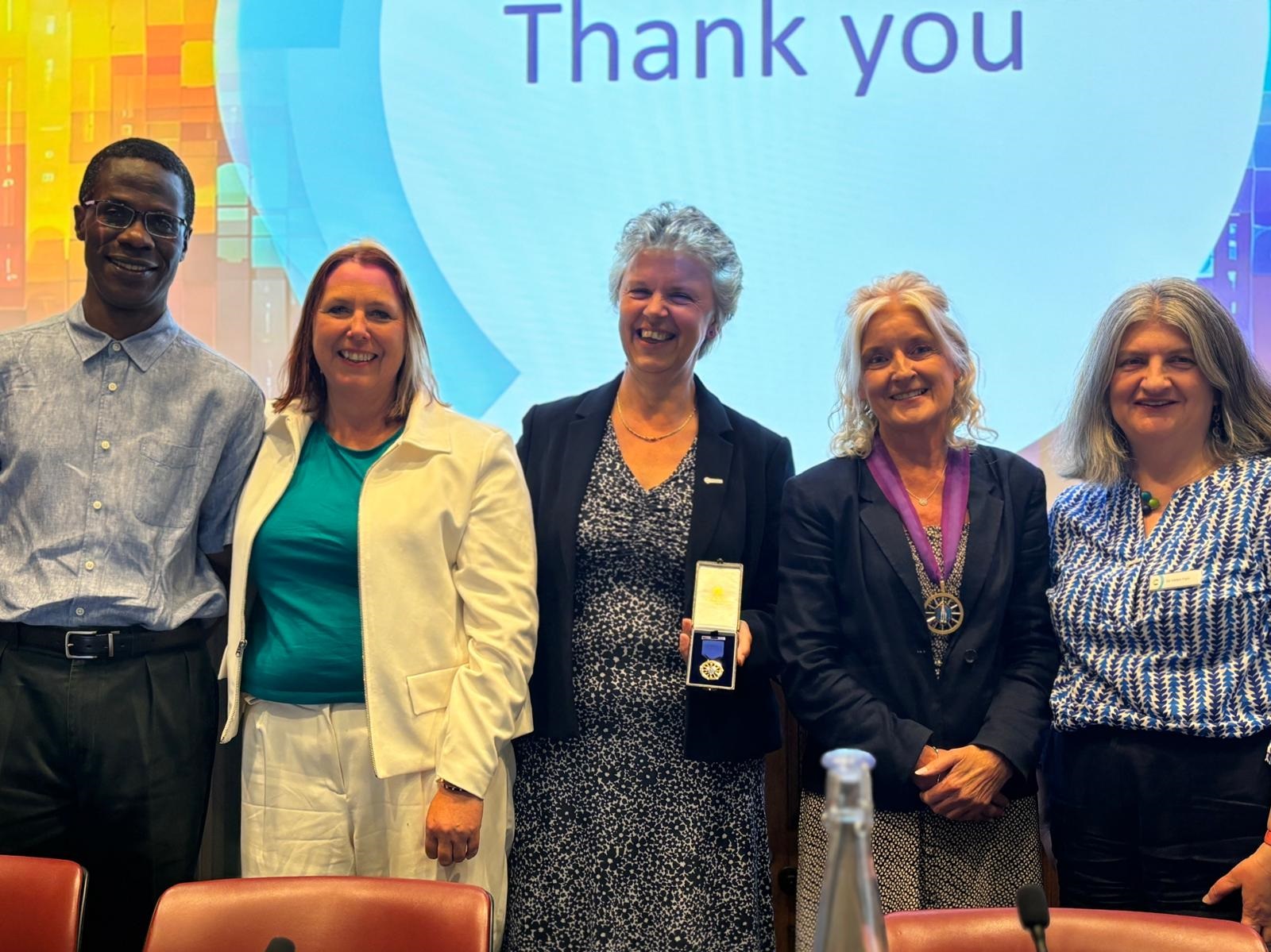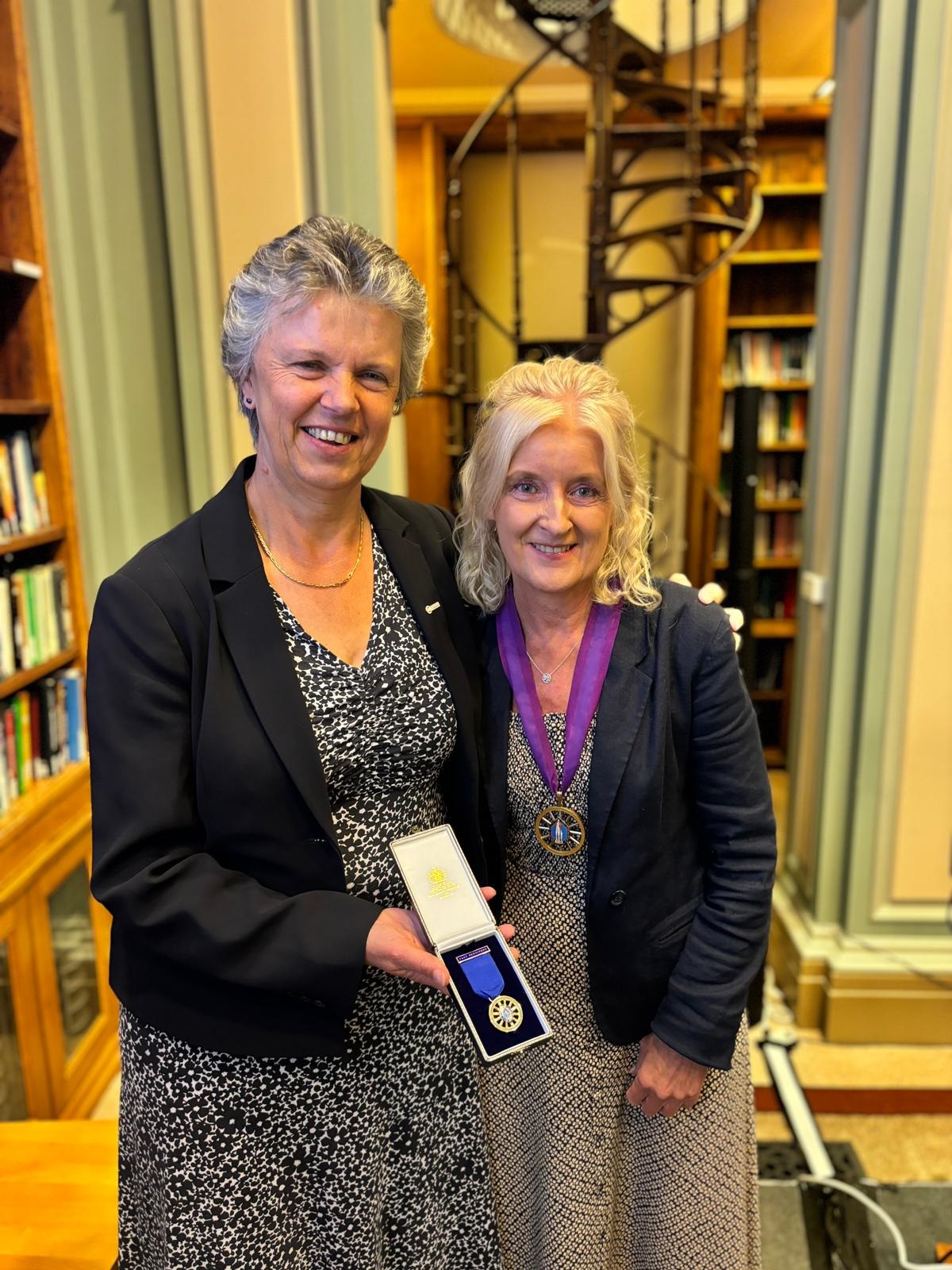Meet our new president: A Q&A session with Dr Annette Doherty
Dr Annette Doherty OBE FRSC recently became the new president of the Royal Society of Chemistry, succeeding Professor Gill Reid. As she starts her two-year term, she talks about her journey to reach this point, past presidential inspiration and her goals for the organisation.

Dr Annette Doherty at the 2023 Royal Society of Chemistry summer party Picture: RSC
Tell us a bit about the road to your election as president – how did you get here?
I’ve been associated with the RSC – in one way or another – for a long time. I became a member when I was a student. I’ve seen the impact of the RSC throughout my career, and I understand the value it can add to people at all stages of their chemistry careers.
As I progressed in my career through the pharmaceutical industry, I recognised the importance of partnership between industry and academia and how the RSC could support and promote collaboration.
I became a trustee of the RSC in 2011, for four years. During that period we were focused on support of our membership, skills needed for the future, investment in innovation and ensuring that chemistry was well-represented at a policy level.
While working within industry at that time, I was able to bring different perspectives and to learn about all the important work that the RSC contributes to.
A few years on, I wanted to become more involved at a trustee level again so that I could continue to contribute to the important work that the RSC was doing to support the chemical sciences community that had supported me throughout my career.
What are the strengths of the RSC that you would like to build on?
Our strong and diverse membership: we have members from academia, industry, teaching and many different professions, at all career stages. I would like to continue to grow our membership to reflect the importance of the workforce both within the UK and internationally.
The chemical sciences community provides critical input to the priorities and work of the RSC so increasing participation and belonging is important.
The breadth of expertise of the community enables us to focus on and influence issues that matter in our public policy work. As an example, environmental sustainability and the pathways to net zero: our expertise and influence can and should come from a broad church of chemists and scientists from across academia and industry.
The RSC’s strong support of innovation and research is also a strength and has been demonstrated in many areas of science, including our work on sustainable plastics, polymers in liquid formulations, novel materials, new energy sources and so on. We are also encouraging innovation through our many programmes, such as Change Makers, to support start-up and scale-up companies in deep-tech chemistry.
We are a large and successful publisher of chemical sciences research and so our commitment to 100% Open Access in our owned journals is important for our whole community – showing leadership in this area is vital as all of scientific publishing moves towards an open access future.

President-elect Professor Robert Mokaya, honorary treasurer Claire Gallery-Strong, former president Professor Gill Reid, new president Dr Annette Doherty and chief executive Dr Helen Pain, at the recent Annual General Meeting at Burlington House Picture: RSC
How can we make the most of our entire community?
Our subject-based and local community sections bring very important contributions from across the scientific community. Promoting a diverse and inclusive culture is a key priority and while we have made progress, we still have lots more work to do.
Rewarding and recognising significant contributions to innovation and partnership are also important ways in which we can demonstrate diverse contributions across our entire community.
It is particularly important to recognise the interdisciplinary nature of science and for the RSC to partner with other organisations to enable scientific discovery and advancement and support of our community. Take drug discovery for example: that needs many different disciplines including but not limited to chemistry, pharmacology, pharmacokinetics and metabolism, clinical sciences; so working more broadly with other organisations and learned societies is really important.
That sense of achieving more in partnership is something I feel very strongly about. Whether we’re talking about leading the way in open access publishing by partnering with institutions and the wider community, or joining with partner organisations to have more influence and impact in policymaking – almost everything the RSC does can be amplified through partnerships.

Professor Gill Reid and Dr Annette Doherty Picture: RSC
As you begin your presidency, what inspiration will you take from presidents past?
In particular, I would like to thank both our outgoing president Gill Reid and the previous president Tom Welton, with whom I have worked in the last four years. Their inspirational leadership have made them true role models for the RSC, our chemical science community and for me personally.
I hope to bring my academic and industry experience to continue to ensure that RSC as a learned society and charity serving society and championing the importance of the chemical sciences in today’s world and into the future.